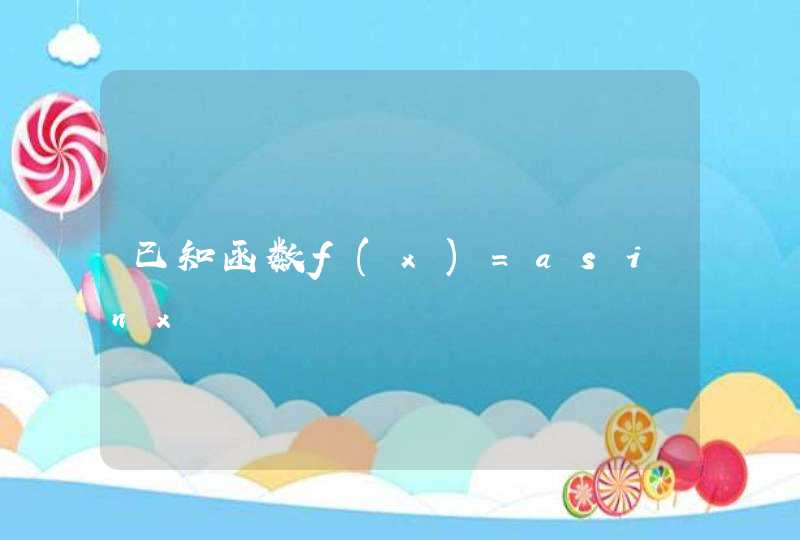
#define MAXSIZE 100
using namespace std
struct stack{
int iway
int jway
int dire
}
stack maze[MAXSIZE]
int top
int map[14][28]={{1,1,1,1,1,1,1,1,1,1,1,1,1,1,1,1,1,1,1,1,1,1,1,1,1,1,1,1},
{1,1,1,1,1,0,0,0,0,0,0,0,0,0,0,1,1,1,0,0,0,0,0,1,1,1,1,1},
{1,1,0,0,1,0,0,0,0,0,0,0,0,0,0,1,1,1,0,0,0,0,0,0,0,0,0,1},
{1,0,0,0,0,0,0,1,1,1,1,1,0,0,0,0,0,0,0,0,0,0,0,0,0,0,0,1},
{1,0,0,0,0,0,0,0,0,0,0,0,0,0,0,0,0,0,0,0,0,0,0,0,0,0,0,1},
{1,0,0,0,0,0,0,0,0,0,0,0,0,0,0,1,0,0,0,1,1,0,0,1,1,0,0,1},
{1,0,0,0,0,0,0,0,1,1,1,0,0,0,1,0,0,0,0,1,1,0,1,1,1,1,0,1},
{1,0,0,0,0,0,0,0,1,1,1,0,1,1,1,1,0,0,0,1,1,0,1,1,1,1,0,1},
{1,0,0,0,0,0,0,0,1,1,1,0,0,0,1,0,0,0,0,1,1,0,0,1,1,0,0,1},
{1,0,0,0,0,0,0,0,1,1,1,0,0,0,0,1,0,0,0,0,0,0,0,0,0,0,0,1},
{1,0,0,0,0,1,1,0,1,1,1,0,0,0,0,0,0,0,0,0,0,0,0,0,0,0,0,1},
{1,0,0,0,0,1,1,0,1,1,1,0,0,0,0,0,0,0,1,1,1,1,0,0,0,0,0,1},
{1,0,0,0,0,0,0,0,0,0,0,0,0,0,0,0,0,0,1,1,1,1,0,0,0,0,0,1},
{1,1,1,1,1,1,1,1,1,1,1,1,1,1,1,1,1,1,1,1,1,1,1,1,1,1,1,1}}
void findway(int xS,int yS,int xE,int yE)
{
top=0
maze[top].iway=xS
maze[top].jway=yS
map[xS][yS]=-1
int i,j,di,find
while(top>-1)
{
i=maze[top].iway
j=maze[top].jway
di=maze[top].dire
if(i==xE&&j==yE)
{
cout<<"***********************************\n"
cout<<"path"<<":"<<endl
cout<<"("<<maze[0].iway<<","<<maze[0].jway<<")"
for(int val=1val<top+1val++)
{
cout<("<<maze[val].iway<<","<<maze[val].jway<<")"
if((val+1)%5==0)
cout<<endl
}
cout<<endl
cout<<"***********************************\n"
return
}
find=0
while(find==0&&di<4)
{
di++
switch(di)
{
case(0):i=maze[top].iway
j=maze[top].jway+1
break
case(1):i=maze[top].iway
j=maze[top].jway-1
break
case(2):i=maze[top].iway+1
j=maze[top].jway
break
case(3):i=maze[top].iway-1
j=maze[top].jway
break
}
if(map[i][j]==0)
{
find=1
}
}
if(find==1)
{
maze[top].dire=di
top++
maze[top].iway=i
maze[top].jway=j
maze[top].dire=-1
map[i][j]=-1
}
else
{
map[maze[top].iway][maze[top].jway]=0
top--
}
}
}
int main()
{
for(int i=0i<14i++) //迷宫图形化输出
{
for(int j=0j<28j++)
{
if(map[i][j]==1)
cout<<"■"
else cout<<"□"
}
cout<<endl
}
int xStart,yStart,xEnd,yEnd
cout<<"请输入迷宫起点坐标,用空格隔开(左上角坐标为(0,0)):"
cin>>xStart>>yStart
cout<<"请输入迷宫终点坐标,用空格隔开(右上角坐标为(13,27)):"
cin>>xEnd>>yEnd
findway(xStart,yStart,xEnd,yEnd)
return 0
}
满意请采纳!
。。。
#include<stdio.h>/*
1 means it is blocked.
0 means it is available/ you can go.
E means the Exit point.
* means the start point.*/
typedef struct{
int x,y,last
}ST
char in[15][15]int vis[15][15]={0}
const int dx[]={0,0,1,-1},
dy[]={1,-1,0,0}
ST st[300]int fr,re
#define ok(_) ((_)>=0&&(_)<11)
#define canto(_,__) (ok(st[_].x+dx[__])&&ok(st[_].y+dy[__]))
#define V(_) (vis[st[_].x][st[_].y])
#define Vd(_,__) (vis[st[_].x+dx[__]][st[_].y+dy[__]])
#define Md(_,__) (in [st[_].x+dx[__]][st[_].y+dy[__]])
int go(int x,int y){
fr=0re=1
st[0].x=x
st[0].y=y
V(0)=1
int i
while(fr<re){
for(i=0i<4i++)
if(canto(fr,i)&&!Vd(fr,i)&&Md(fr,i)!='1'){
st[re].x=st[fr].x+dx[i]
st[re].y=st[fr].y+dy[i]
st[re].last=fr
Vd(fr,i)=1
if(Md(fr,i)=='E')return re
re++}
fr++
}
return 0
}
void solve(void){
int i,j,p=-1
for(i=0i<11i++)
for(j=0j<11j++)
if(in[i][j]=='*')
if(p==-1)p=go(i,j)
else {
printf("Too Many Start Point!")//这是废话,可删
return }
if(p==-1)printf("No Start Point!")//同上
else if(p==0)printf("Cant Go To End!")//同上
else {
for(i=0i<11i++)
printf("%s\n",in[i])//输出原迷宫
printf("\n")
while(st[p].last!=0){
p=st[p].last
if(p==0)break
in[st[p].x][st[p].y]='x'}//用x替换路径
for(i=0i<11i++)
printf("%s\n",in[i])//输出
}
return
}
int main(int ac,char **ar){
FILE *inp=NULL
int i
if(ac==1)return 0
inp=fopen(ar[1],"r")
if(inp==NULL)return 0
for(i=0i<11i++)
fscanf(inp,"%s",in[i])
solve()
return 0
}
/*BY TXJ*/
#include <stdio.h>#include <stdlib.h>
typedef struct
{
int x
int y
int type
int v
}POINT
POINT s[10][10],stack[50],start,end,c
int pos=0
void prt()
{
int i,j
system("cls")
for(i=0i<10i++)
{
for(j=0j<10j++)
{
if(end.x==i && end.y==j)
{
printf("ex")
}
else if(s[i][j].type==1)
{
printf("■")
}
else if(i==c.x && j==c.y)
{
printf("●")
}
else
{
printf(" ")
}
}
printf("\n")
}
system("pause")
}
void stack_in(POINT a)
{
stack[pos++]=a
}
POINT stack_out()
{
int i
POINT t
t=stack[0]
for(i=0i<pos-1i++)
{
stack[i]=stack[i+1]
}
pos--
return t
}
void fun()
{
POINT a
int x,y,v
while(1)
{
if(pos==0)
{
break
}
a=stack_out()
x=a.x
y=a.y
if(x==start.x && y==start.y)
{
break
}
v=s[x][y].v
if(x-1>=0 && s[x-1][y].type==0 && (s[x-1][y].v==-1 || s[x-1][y].v>v+1))
{
s[x-1][y].v=v+1
stack_in(s[x-1][y])
}
if(x+1<=9 && s[x+1][y].type==0 && (s[x+1][y].v==-1 || s[x-1][y].v>v+1))
{
s[x+1][y].v=v+1
stack_in(s[x+1][y])
}
if(y-1>=0 && s[x][y-1].type==0 && (s[x][y-1].v==-1 || s[x-1][y].v>v+1))
{
s[x][y-1].v=v+1
stack_in(s[x][y-1])
}
if(y+1<=9 && s[x][y+1].type==0 && (s[x][y+1].v==-1 || s[x-1][y].v>v+1))
{
s[x][y+1].v=v+1
stack_in(s[x][y+1])
}
// prt()
}
}
void go(int x, int y)
{
int v
while(1)
{
if(x==end.x && y==end.y)
{
return
}
v=s[x][y].v
if(v==0)
{
return
}
if(x-1>=0 && s[x-1][y].v==v-1)
{
c=s[x-1][y]
x=x-1
prt()
continue
}
else if(x+1<=9 && s[x+1][y].v==v-1)
{
c=s[x+1][y]
x++
prt()
continue
}
else if(y-1>=0 && s[x][y-1].v==v-1)
{
c=s[x][y-1]
y--
prt()
continue
}
else if(y+1<=9 && s[x][y+1].v==v-1)
{
c=s[x][y+1]
y++
prt()
continue
}
}
}
int main()
{
int i,j
for(i=0i<10i++)
{
for(j=0j<10j++)
{
s[i][j].x=i
s[i][j].y=j
s[i][j].type=0
s[i][j].v=-1
}
}
int x,y
end=s[9][5]
start=s[0][0]
x=end.x
y=end.y
s[x][y].v=0
stack_in(end)
s[0][4].type=1
s[0][8].type=1
s[1][2].type=1
s[1][6].type=1
s[1][8].type=1
s[2][0].type=1
s[2][2].type=1
s[2][4].type=1
s[2][5].type=1
s[2][6].type=1
s[2][6].type=1
s[3][2].type=1
s[3][4].type=1
s[3][8].type=1
s[4][0].type=1
s[4][2].type=1
s[4][4].type=1
s[4][6].type=1
s[4][7].type=1
s[4][8].type=1
s[5][2].type=1
s[6][0].type=1
s[6][2].type=1
s[6][4].type=1
s[6][5].type=1
s[6][6].type=1
s[6][7].type=1
s[6][8].type=1
s[7][2].type=1
s[7][4].type=1
s[7][8].type=1
s[8][1].type=1
s[8][2].type=1
s[8][4].type=1
s[8][6].type=1
s[8][8].type=1
s[9][4].type=1
s[9][6].type=1
fun()
c=start
prt()
go(start.x,start.y)
return 0
}





































































